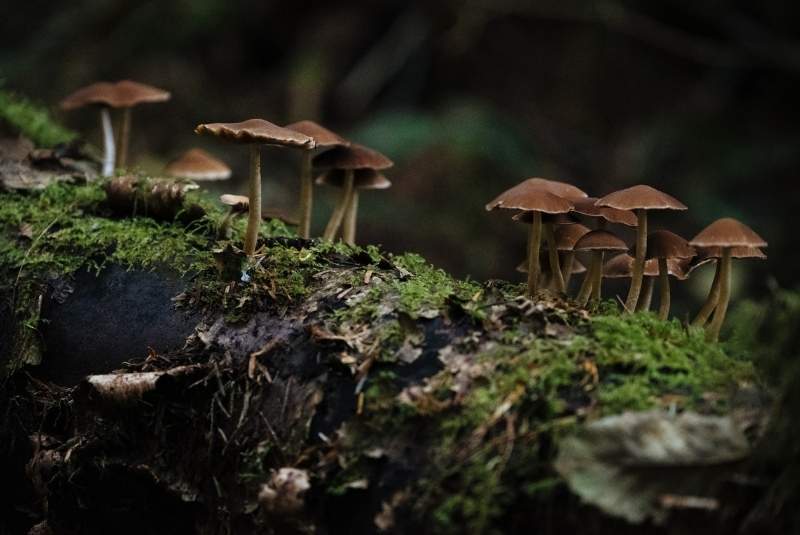I read a book a few months ago called Entangled Life. It describes the astonishing activity beneath my feet, especially when said feet carry me through a forest, a place where fungi and roots commingle with lubricious-level abandon, and microbes, invertebrates, and insects join as well in their different ways. Where there’s life there will be competition, but the overwhelming picture is of coordination for mutual benefit. When a tree falls in the forest it is heard and felt by a multitude of commensals, its friends and relatives and associates, symbionts, and mutualists, all of whom feel the loss. These notions of relationship and sentience are, I believe, becoming harder to reject by the mechanists and anthropocentrists of the botanical and zoological research worlds.
Over the years I have read a fair amount about consciousness and attempts to account for it. Even so, the space filled by my ignorance is surely vaster than that with knowledge and insight. I was stimulated to think more about it a few days ago as I read something about plant sentience and the possibility of plant consciousness. Consciousness as apparently objective fact as well as subjective experience is a complex notion and as far as I know, no definition of what it actually is is generally acceptable to those who study the matter. But when plants are documented to display memory, adaptability and responsiveness, intentionality, learning, awareness, sociality, and decision-making, it’s hard to deny them consciousness of some sort however it’s defined. (One caveat to this statement: Over the centuries some people have worked hard to deny animal consciousness and one of their methods has been to define it so that it excludes any but humans’; the same will happen with plants. Anthropocentrism, even among those who should know better, is a powerful force.) Naturally, I am inclined toward the affirmative on this question; all life may well have a type or degree of consciousness and I expect that rather than yearning for human preeminence. But this doesn’t lead me to affirming an identity between the consciousness of plants and animals. The physical/neurological differences seem to preclude it. I don’t, for example, imagine plants thinking about their existence as I do mine, or that their consciousness ranges over a diversity of issues and concerns. What is life for? and How should I live? probably doesn’t preoccupy them; they most likely are born knowing. I have arrived at a distinction that may not end up holding water but makes sense to me today: reflective as an alternative process to reactive consciousness. The main distinction being that the former carries awareness of being aware and thus of possibly not being at all, whereas reactive consciousness is aware of its environment and of its needs, vulnerabilities, and capacities and uses its knowledge to care for itself and many of its fellows and to maintain intercourse with fungi and other plants that is far more extensive and sophisticated than we’ve known (but are learning) and that serves both self and other interests. It pleases but does not surprise me to recognize that the Earth is so widely populated with beings who “know” they’re here and mostly enjoy it. And that my species is but one among legions and would enjoy life more and destroy less if it climbed aboard and learned that caring and sharing are so inherently satisfying.
Part II – Next Week
Photo by Jesse Dodds on Unsplash


